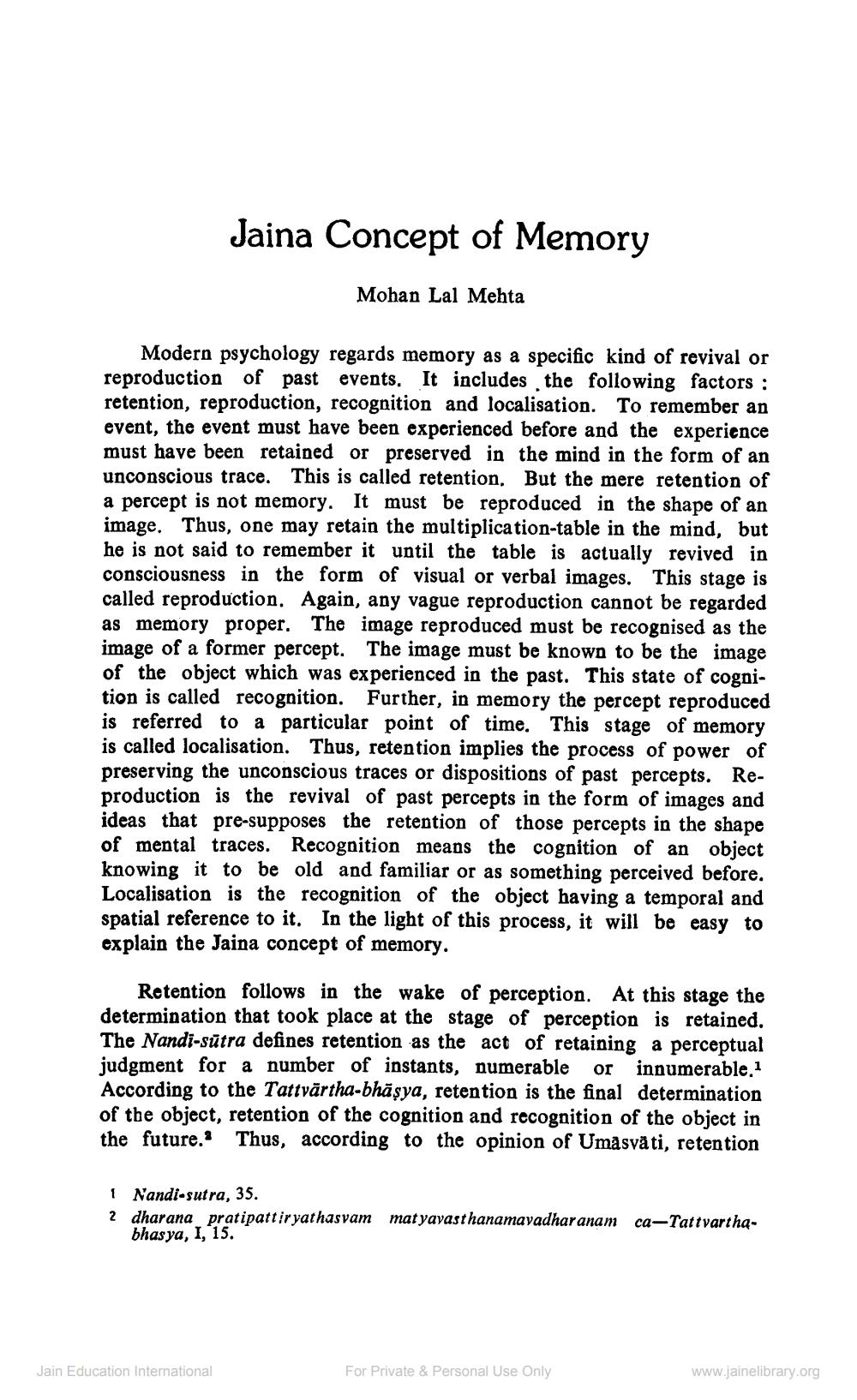________________
Jaina Concept of Memory
Mohan Lal Mehta
Modern psychology regards memory as a specific kind of revival or reproduction of past events. It includes the following factors : retention, reproduction, recognition and localisation. To remember an event, the event must have been experienced before and the experience must have been retained or preserved in the mind in the form of an unconscious trace. This is called retention. But the mere retention of a percept is not memory. It must be reproduced in the shape of an image. Thus, one may retain the multiplication-table in the mind, but he is not said to remember it until the table is actually revived in consciousness in the form of visual or verbal images. This stage is called reproduction. Again, any vague reproduction cannot be regarded as memory proper. The image reproduced must be recognised as the image of a former percept. The image must be known to be the image of the object which was experienced in the past. This state of cognition is called recognition. Further, in memory the percept reproduced is referred to a particular point of time. This stage of memory is called localisation. Thus, retention implies the process of power of preserving the unconscious traces or dispositions of past percepts. Reproduction is the revival of past percepts in the form of images and ideas that pre-supposes the retention of those percepts in the shape of mental traces. Recognition means the cognition of an object knowing it to be old and familiar or as something perceived before. Localisation is the recognition of the object having a temporal and spatial reference to it. In the light of this process, it will be easy to explain the Jaina concept of memory.
Retention follows in the wake of perception. At this stage the determination that took place at the stage of perception is retained. The Nandi-sütra defines retention as the act of retaining a perceptual judgment for a number of instants, numerable or innumerable.1 According to the Tattvārtha-bhāşya, retention is the final determination of the object, retention of the cognition and recognition of the object in the future. Thus, according to the opinion of Umäsväti, retention
1 Nandi-sutra, 35. 2 dharana pratipattiryathasvam
bhasya, I, 15.
matyavasthanamavadharanam
ca-Tattvartha
Jain Education International
For Private & Personal Use Only
www.jainelibrary.org




